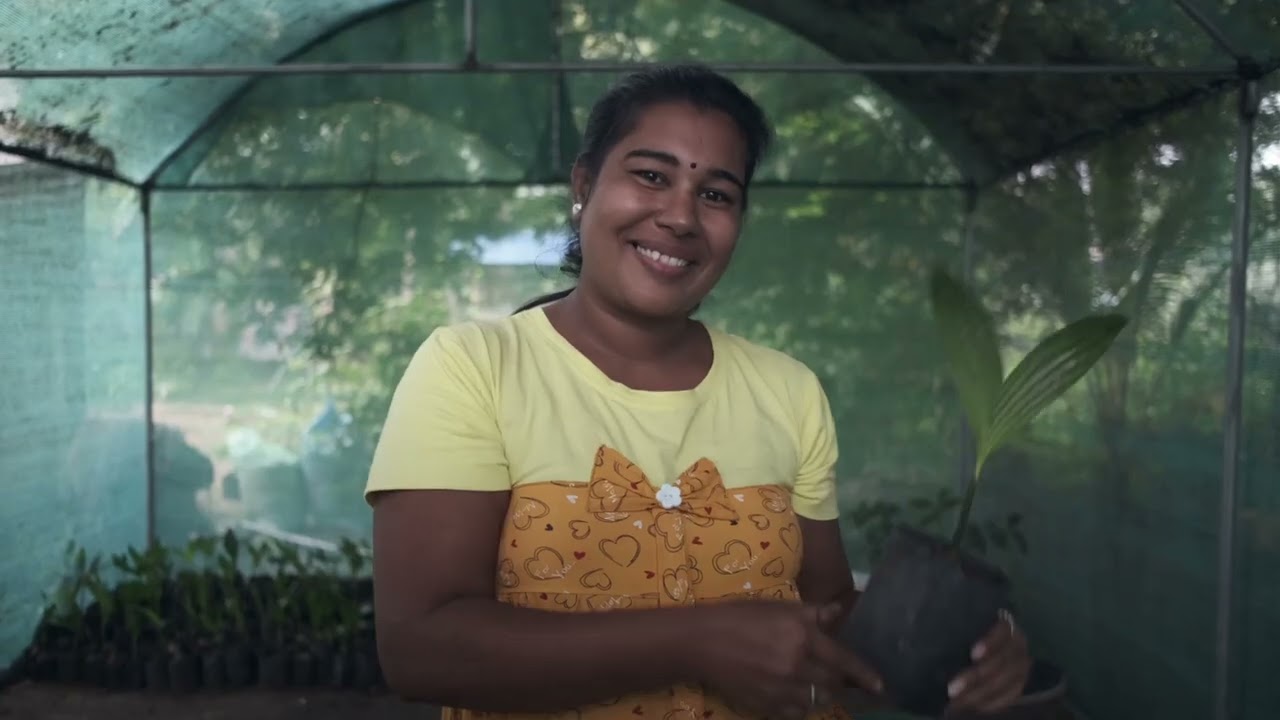Treading towards a secure future by threading needles and trading produce
Date:
Author: Abhi Ananth
The purple and yellow sequinned fabrics that remain just out of focus behind Habeeba almost seem like a metaphor for what she strives to reclaim in her life: colour and lustre and a more hopeful future.
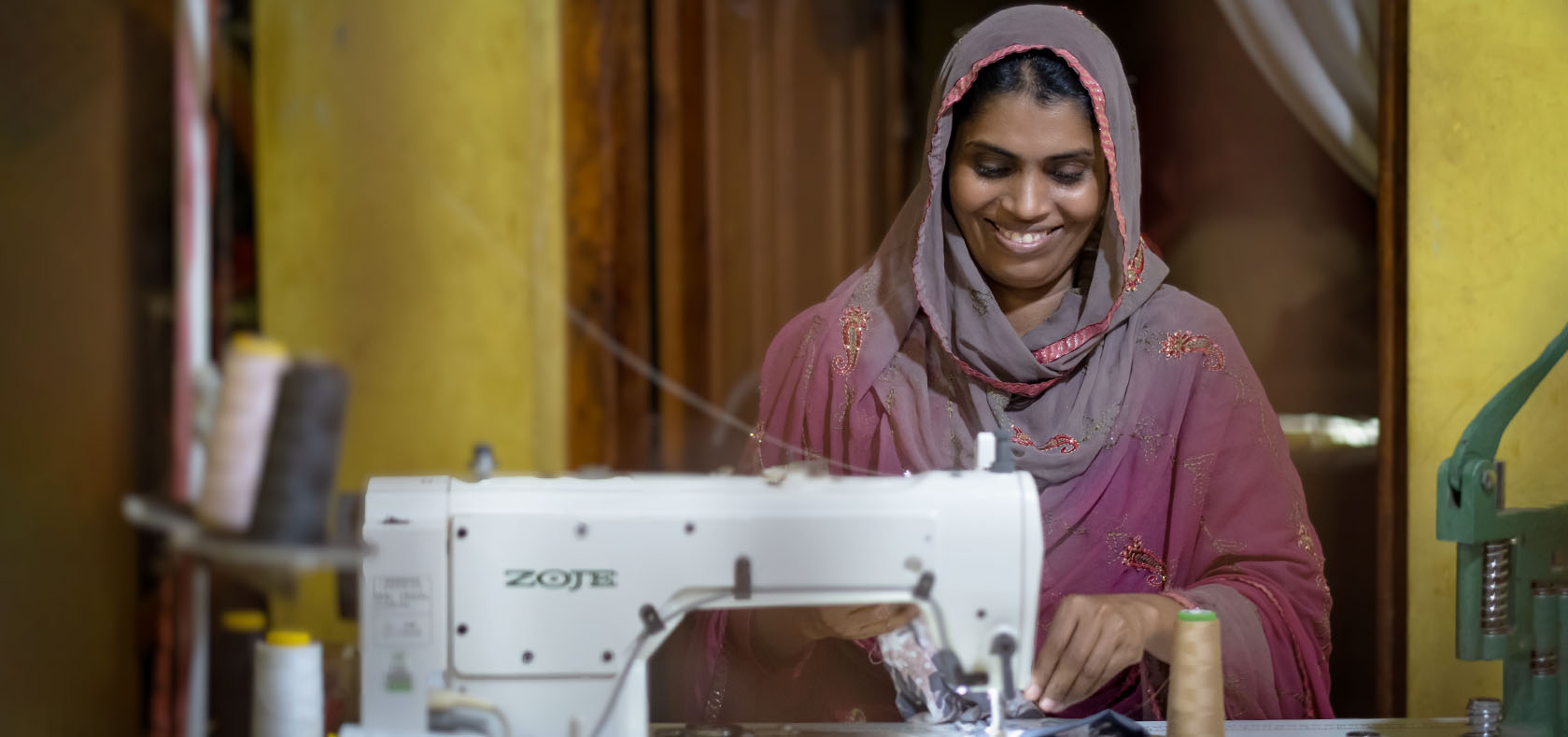
Athuraheem Habeeba, 47, living in Maliyakadu in the Ampara District in Sri Lanka, has been trying her hand at different micro-businesses since her husband passed. Her determination to be self-reliant and support her mother and siblings led to her selling fabrics sourced from Colombo. She sews for custom orders, supplies mobile reload cards, and hand-carves ornamental designs on wooden furniture. Despite her many ventures, she aspires to run her own textile and clothing store as a tribute to her late husband, who encouraged her passion for dressmaking.
“My husband wanted us to own a textile store in the Ampara town, fully stocked with fabrics, buttons, tassels, and all the trimmings anyone would need,” she muses.
Habeeba was one of the many recipients of a series of 10-day entrepreneurship trainings conducted in 2021 by UN Women and local social enterprise Chrysalis in the districts of Ampara, Monaragala, Vavuniya, and Colombo. Organized to enhance the economic opportunities for women, these programmes delivered training on business development and entrepreneurship with a focus on product ideation, marketing, and financial literacy, and subsequently offered financial assistance and in-kind grants to participants who presented feasible business plans to expand or start their enterprises.
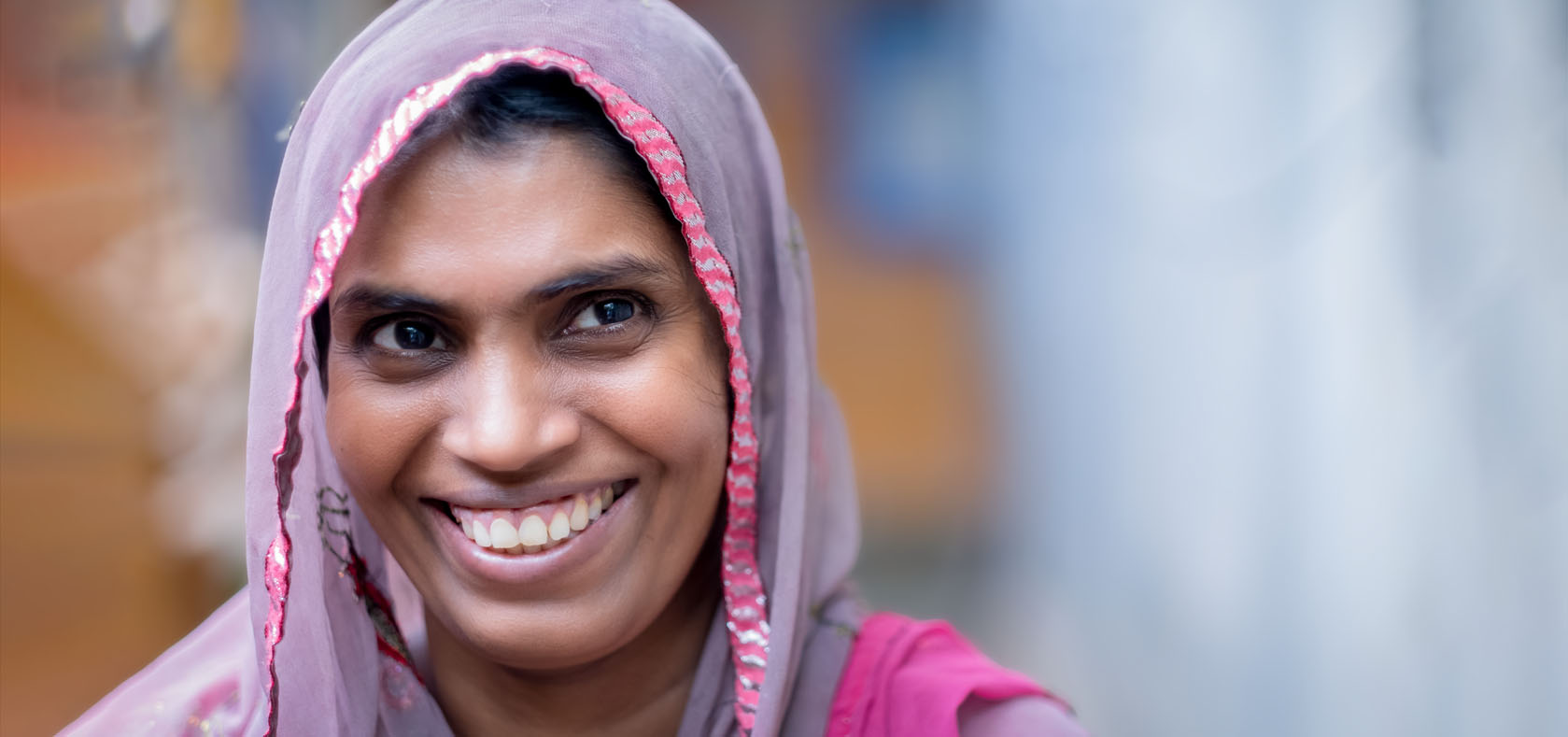
This training has brought Habeeba one step closer to fulfilling her aspirations. Habeeba says that besides training her on how to run a business, the training programme, which began in February 2021, offered her knowledge on keeping accounts, which is pivotal for operating a profitable business, and taught her how to repair sewing machines. In addition, Habeeba and many like her were provided with sewing lessons and insight on where to source fabrics from wholesalers.
Upon completing her training, Habeeba received an overlock sewing machine with which she now sews t-shirts, abayas, and dresses to supply to clothing stores in her town. Although she now has an assistant, she looks forward to expanding her business and eventually owning her store.
Aysha Azarudeen, 42, also a widow and a mother of two, lives in Slave Island, a suburb in Colombo-2. Since receiving a brand-new industrial sewing machine after completing the same training programme, she says she has increased her output by almost four times.
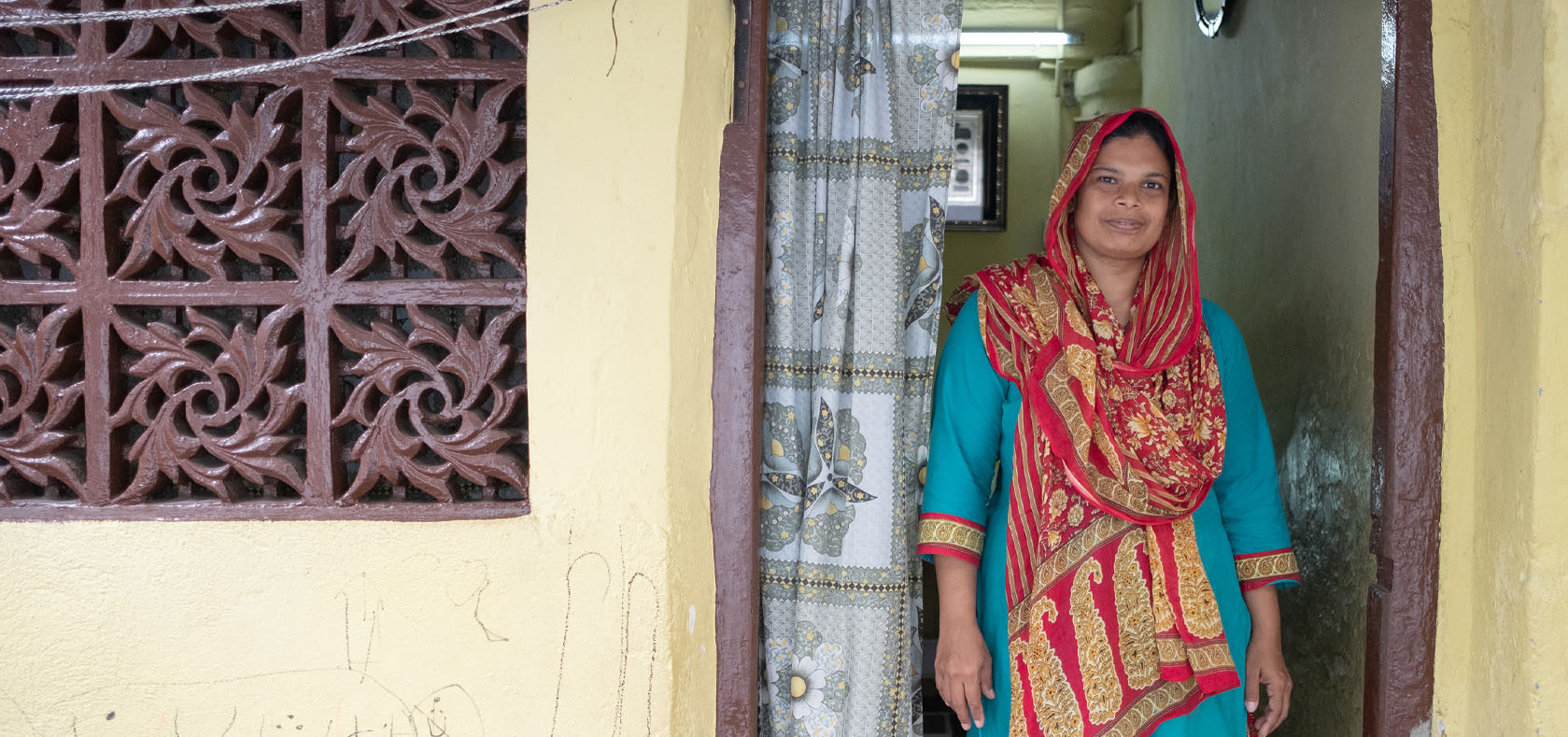
She joined the training programme in November 2021 through the local Vanitha Women’s Association, and is convinced that micro-entrepreneurs will have higher chances of success if they are exposed to training on financial literacy and business management. As someone who barely left the home while her husband was alive, Aysha says that the training programme provided her with in-depth knowledge on how to run a business and price her apparel accurately based on the accessories she attaches to them. She also learned to include the cost of machinery wear and tear in the prices of the clothes she produces, which she then sets aside for future asset purchases.
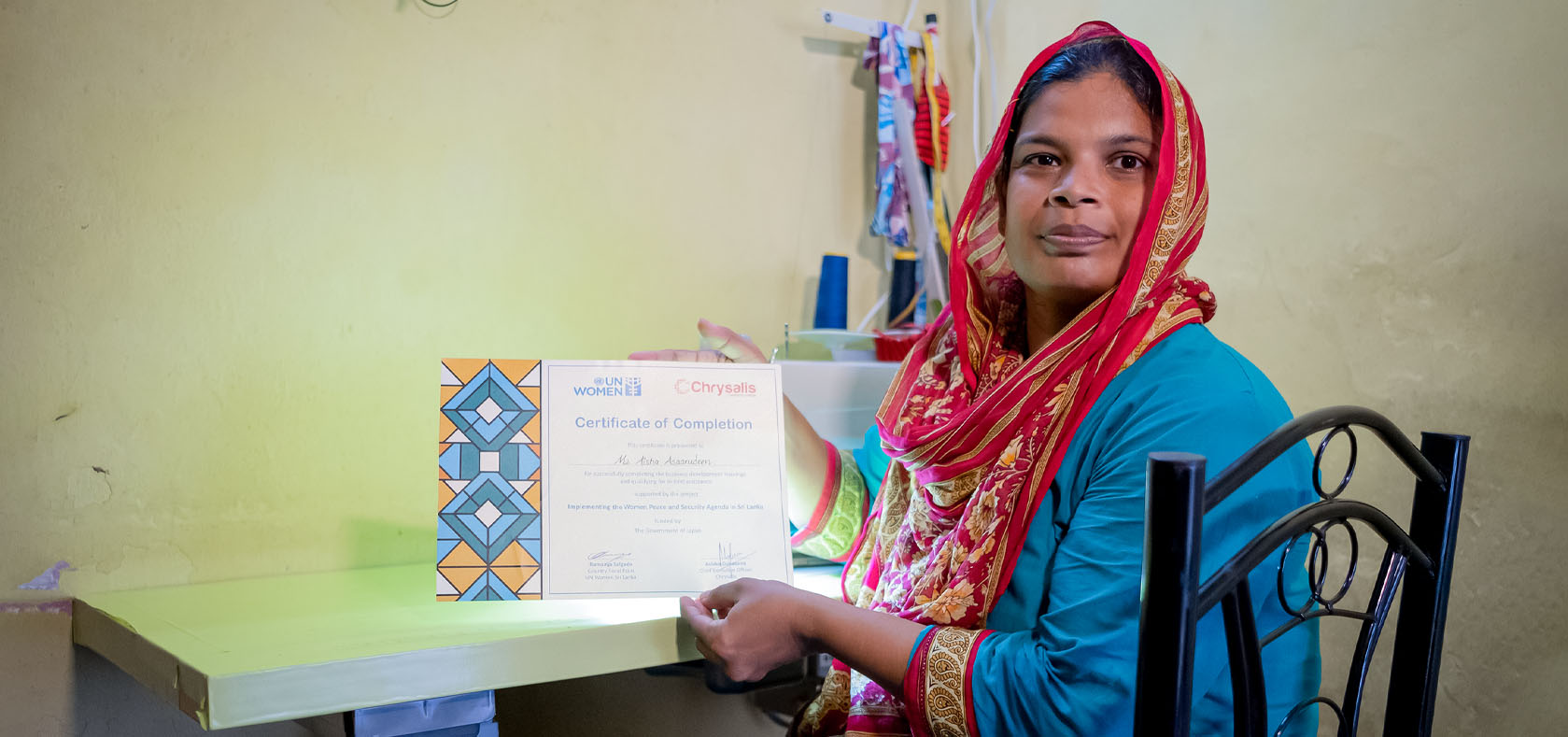
After completing the training programme, Aysha, who had only been sewing clothes to order, registered her own company and began making ready-made clothes to supply to dress shops around her neighbourhood. She is also thankful that she can run her business from home while taking care of her children and her mother, who is unwell.
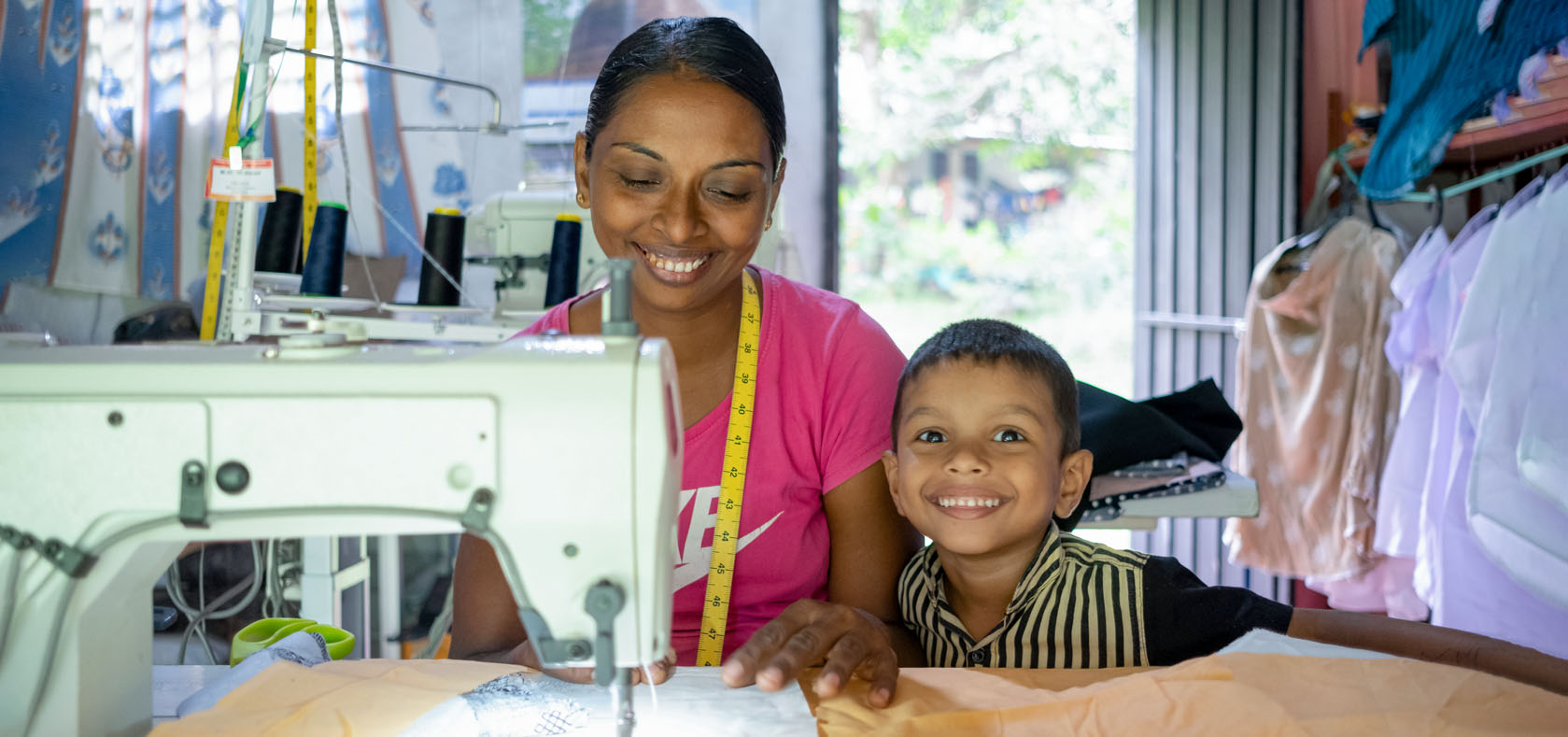
In Monaragala, W.G Shiromi, 42, with an ever-present measuring tape around her neck and three children always ready to help with threading needles, says she looks forward to expanding her sewing business with four tailors. With five years of experience working at a garment factory, Shiromi already knew her way around sewing machines. What she gained from the entrepreneurship training that began in 2022 was business acumen. She learned how to manage her business accounts, make business plans, how to attract and retain clients, pricing strategies, and also ways to differentiate her business offering from competitors.
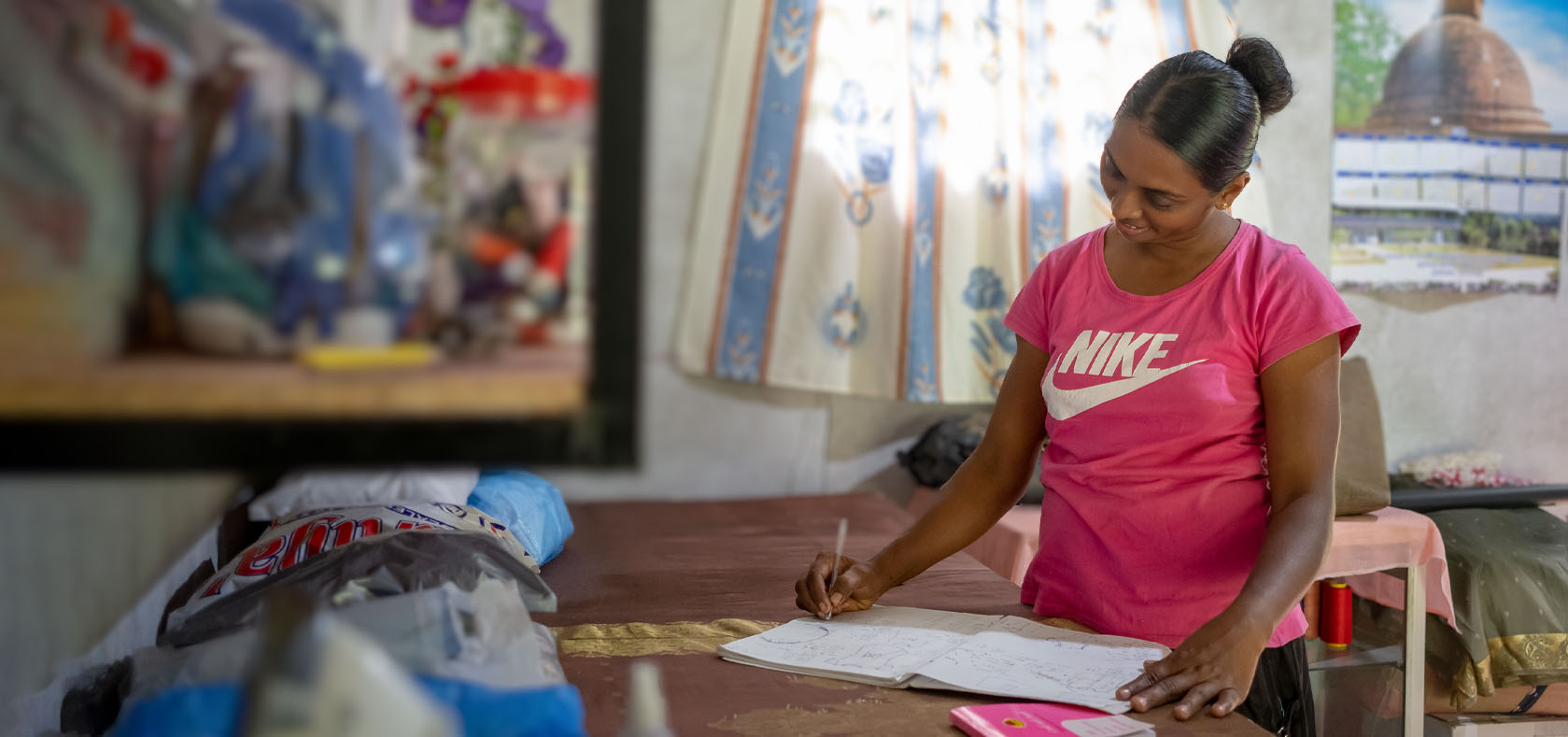
With her new-found knowledge, and support from her husband who is a sample manager at a garment factory, Shiromi is determined to accept more orders from Colombo in the next year to bolster the financial stability of her family. The new sewing machine she received at the end of the training has also improved the turnaround times of the orders and lessened the labour intensity of her work.
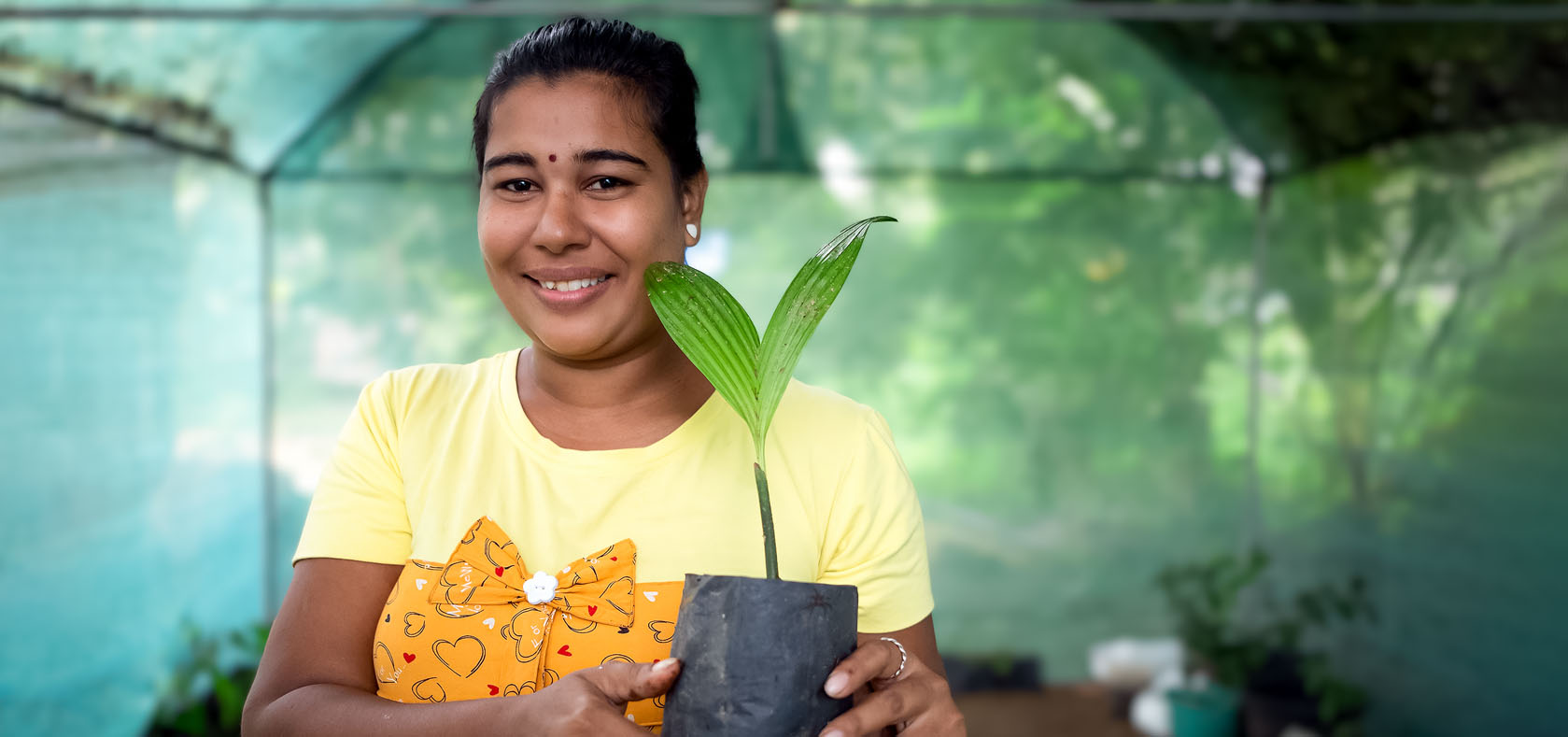
In Puliyankulam, a town in Vavuniya District, Mugunthan Jeyavinoja, 31, received a water pump and supplementary pipes after she completed her training. She uses it to water the crops in the greenhouse she set up. The new equipment reduces her energy cost and enables her to maintain the garden during dry months. Jeyavinoja says that some of the important aspects she learned from the training sessions were advertising and how to take products to the market. Following her lessons, she has even listed some of her crops online. Among other things, she learned how to maintain accounts to ascertain profits and losses and manage a bank account.
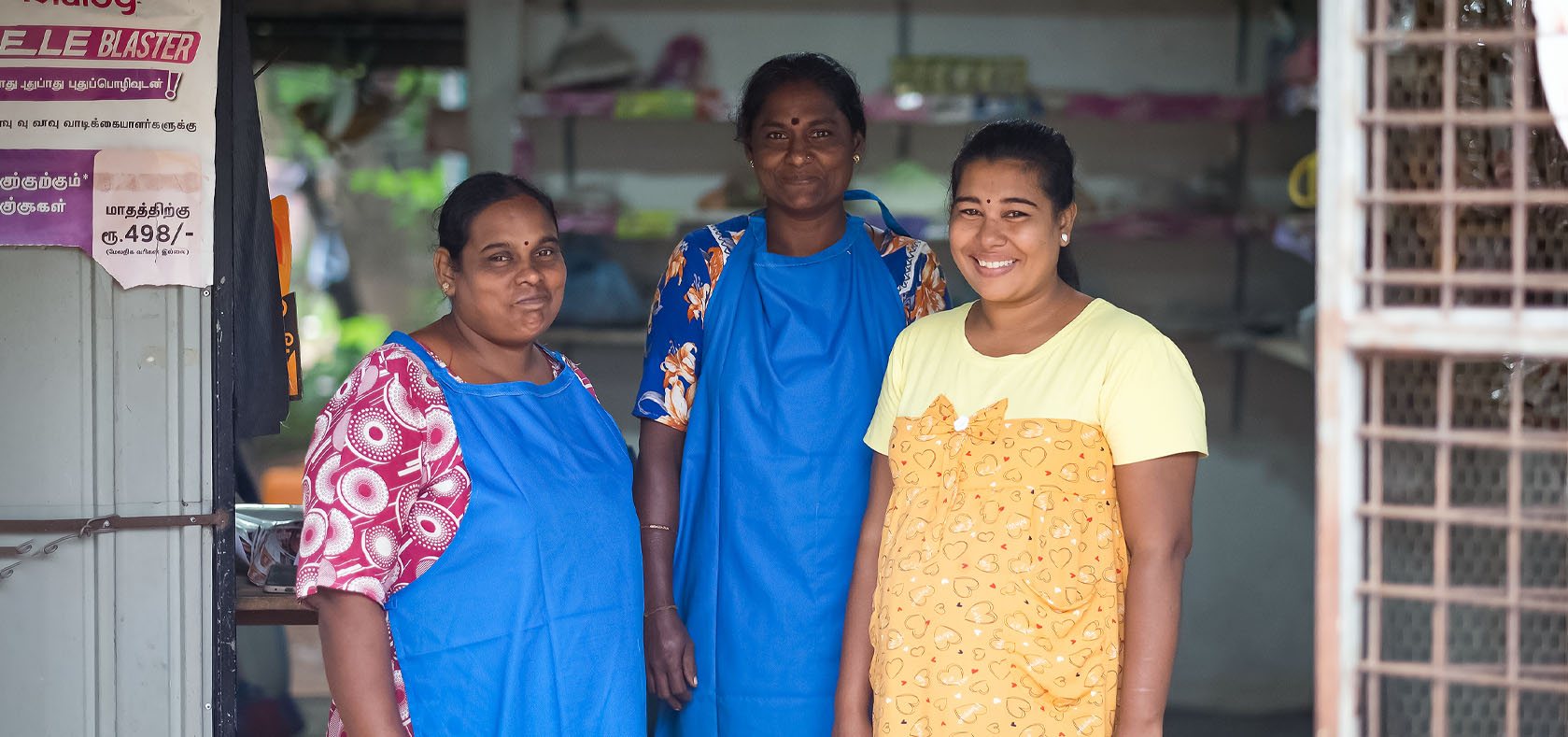
Determined to be self-reliant and lift her family from the clutches of poverty, Jeyavinoja also operates a grocery shop, and has started a micro business in producing, packeting and selling spices such as chili powder. None of these is without challenges, and although currently there is much debt to be repaid, Jeyavinoja is resolute about turning things around and even starting a snack production venture.
Despite the resolve of these women micro-entrepreneurs, the struggle continues. The current economic crisis in Sri Lanka, which has caused a surge in the prices of raw material and energy, and a shrinkage in the purses of regular customers, mean that they have to double and triple their efforts to operate profitably. Even so, their stories are inspirational to anyone attempting to start a new business.
The entrepreneurship trainings and support provided to Habeeba, Aysha, Shiromi and Jeyavinoja are part of UN Women’s three-year project titled Implementation of the Women, Peace and Security Agenda in Sri Lanka. More than 700 women have benefitted from the trainings conducted by UN Women and Chrysalis, a local social enterprise. The project was implemented from 2020 – 2022 and was funded by the Government of Japan.
